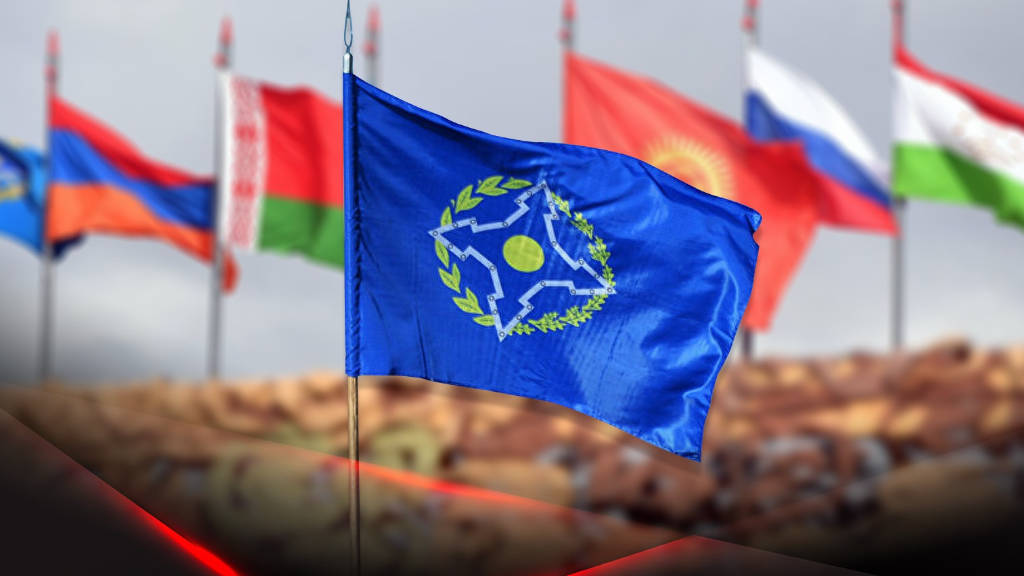The Russian Foreign Minister, Sergey Lavrov; has been attending the annual Collective Security Treaty Organisation (CSTO) meetings, held this year in Kyrgyzstan. The CSTO is often described as a ‘Eurasian version of NATO’ and includes Russia along with Belarus, Kazakhstan, Kyrgyzstan, and Tajikistan. Armenia is also a member but has not recently been participating. Afghanistan and Serbia are observer nations.
The CSTO maintains a peacekeeping force that has been deployed to areas of conflict, including Tajikistan and Kyrgyzstan. The force is composed of troops from member states and is designed to provide stability and security in the region. Most recently, in January 2022, the CSTO deployed 2,000 of its peacekeepers to Kazakhstan to quell the local unrest.
The CSTO foreign ministers released specific operational statements on radicalisation and terrorism as well as combatting the spread of misinformation after their meetings. These are summaries of what was said:
Radicalisation, Extremism & Terrorism

The member states expressed profound concern over the escalating threats of terrorism and extremism worldwide, while acknowledging numerous internal and external factors that give rise to radicalisation, further fuelling violence and involvement in terrorist and extremist activities. They specifically discussed radical ideologies, including neo-Nazism, xenophobia, racism, religious intolerance, insults to believers’ religious sentiments, xenophobia, aggressive nationalism, and ethnic and racial discrimination. They emphasise that terrorism and extremism must not be associated with any religion, nationality, civilisation, or ethnic group.
They attach paramount importance to implementing comprehensive measures to counter the financing and other forms of support for terrorism and extremism, including through disrupting recruitment, arms supply channels, and the cross-border movement of terrorists.
They underscored the importance of eradicating the internal and external causes and conditions that give rise to and spread radicalism, including through educational systems, awareness-raising efforts, and support for traditional religious institutions that foster harmony in interfaith and interethnic relations. They advocate greater engagement by the media, religious leaders, academic institutions, and the business community in state-led initiatives aimed at raising awareness of the dangers posed by the ideologies and activities of terrorist and extremist organisations, while promoting principles of tolerance, social cohesion, and respect for ethnic, religious, and cultural diversity.
They opposed double standards in the sphere of combating terrorism and extremism, as well as attempts to exploit terrorist and extremist groups for self-serving geopolitical aims. They aim to consolidate efforts in the international struggle against terrorism and extremism, and to engage in collaborative work based on equitable dialogue and respect for national sovereignty. This aims to prevent and suppress terrorist acts and to eliminate the conditions that enable the spread of terrorism and extremism. Such endeavours must be supported by strengthened collaboration, full respect for the central and coordinating role of the United Nations, observance of relevant obligations under international law, including the UN Charter and pertinent international conventions and protocols, implementation of the relevant UN Security Council resolutions, and a balanced application of the UN Global Counter-Terrorism Strategy.
International Misinformation

The CSTO referred to the Agreement on Cooperation in the Field of Information Security, recognising the importance of strengthening the international legal framework governing the use of information and communication technologies, and expressed support for the development of a global system of international information security grounded in the principles of the UN Charter, respect for the sovereignty of states and non-interference in their internal affairs.
They welcomed the adoption of the Convention against Cybercrime at the UN General Assembly, the first universal instrument aimed at strengthening international information security. They urged all states to sign the Convention at the official ceremony scheduled for October 2025 in Hanoi and to initiate, without delay, the necessary domestic procedures to facilitate its swift entry into force.
The CSTO emphasised the need to develop additional universal, legally binding instruments addressing other critical aspects of international information security, including the prevention and resolution of interstate conflicts, and showed support for the adoption of a final decision at the 80th session of the United Nations General Assembly to establish a permanent mechanism for ensuring international information security, founded on the principle of consensus and guided by the central role of states.
They proposed international cooperation in the operation of low-orbit satellite internet communication systems, with due regard for the national interests and security of states.
Iran, Serbia, Afghanistan

In addition to the operational aspects, the CSTO also commented on the situation in the Middle East, condemning the use of force against Iran as being in violation of the United Nations Charter. They stated that political, and diplomatic efforts remain the only viable approach to addressing the Iranian nuclear programme issue.
As concerns absent member Armenia, the CSTO expressed concern with recent unrest in the country as well as unrest in Serbia. Lavrov’s comments on these can be seen here. Discussions were also held concerning Afghanistan, with Russia recognising the Taliban as its legitimate government. This included the creation of sustainable development goals for Afghanistan and the Central Asian region. A UN Regional Centre for the Sustainable Development Goals for Central Asia and Afghanistan is to be established in Almaty.
Collaborations
The CSTO also discussed collaboration with the Commonwealth of Independent States and the Shanghai Cooperation Organisation. No additional comments were published.
Further Reading
Russia – Kazakhstan – CSTO: 2024 Security and Trade Relations – Update & Analysis

 Русский
Русский













